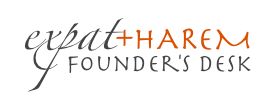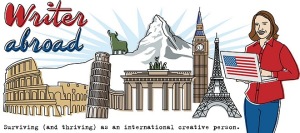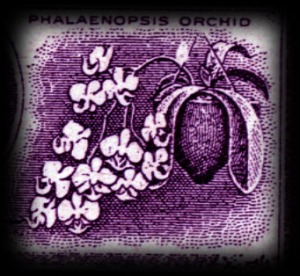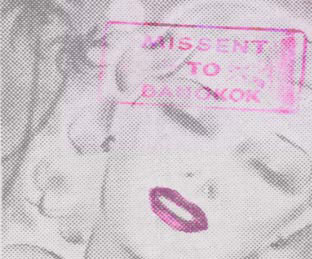I come from a land of Earth Mothers. On trips back to the West Coast — Northern California, Oregon — I note many hip young women are proud of their soft, rounded bellies, a more feminist 1970s standard of womanliness than the anorexic aughts. Like them, to me “being grounded” has meant a low center of self-gravity. Being solid in yourself. Tapped into the source. Unflappable.

personal compass
There’s a problem with concrete though. It cracks over time, in quickly changing conditions, and sometimes even under its own weight. Settling into a life choice or a mindset that feels right today can suddenly be unsatisfactory two minutes into Tuesday. Ever a joined a group only to realize you simply wanted partial-membership in it?
So I’ve been thinking about fluidity. Imagine being a bobbing buoy, tied to a point deep below the surface of changing options.
By putting some distance between me and my center of gravity, I have room to be in a wider orbit around the inner me.
The winds and waves take me to new realms of myself. Life phases, bad hair days, culture shocks. Friend, colleague, wife. Turkish resident. Foreign employer, American daughter-in-law. Inspirational (or incomprehensible) online acquaintance. They’re not always the same person and they don’t want to be.
A related post by artist Rose Deniz questions how one’s worldview literally shifts as a result of location. Just like the hybrid self, living a hybrid life to its fullest extent may require us to toss the concrete plan.
In a new expat+HAREM real-time discussion series launching February 28th, Deniz will curate a live-recorded conversation spurred by this notion. Ten international women will gather at the cross-roads to ponder the freedoms of blurry boundaries, and reveal the anchors of their multifaceted lives.
What determines your present orbit, and how does it change your self-view?
This blog has moved. Comment here.
Read Full Post »





 2010 Capital of Culture monthly feature of best Istanbul links
2010 Capital of Culture monthly feature of best Istanbul links